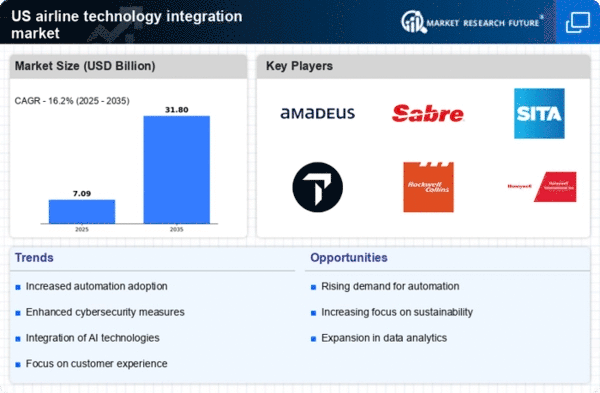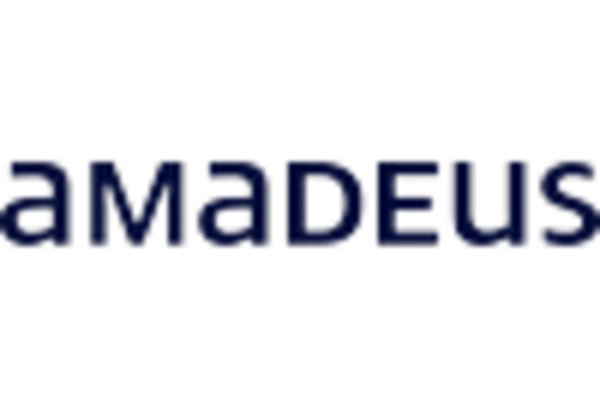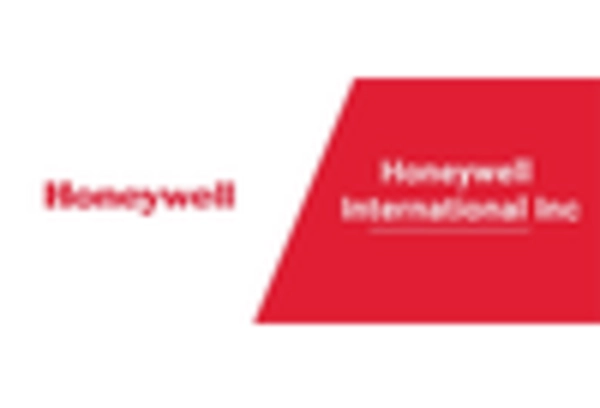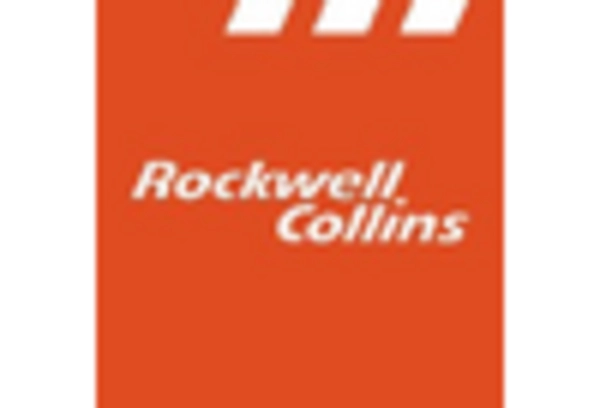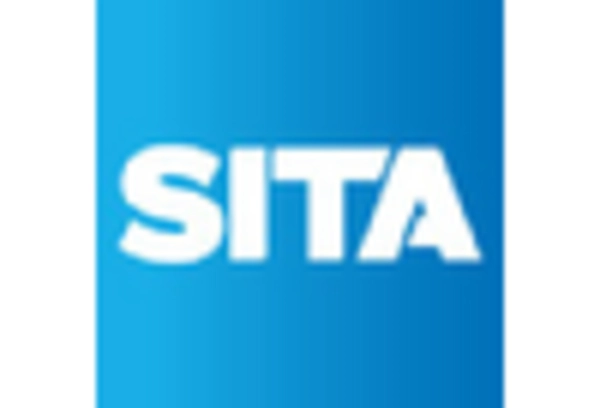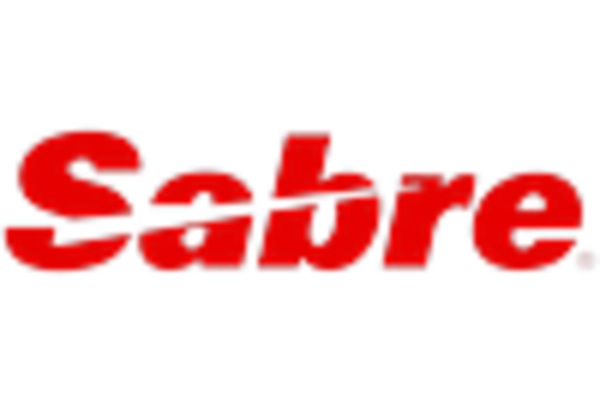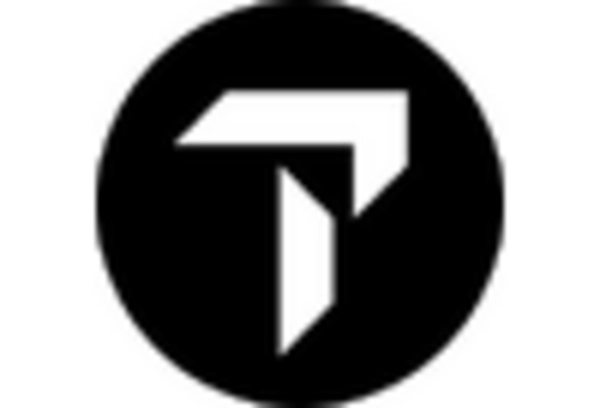Rise of Data-Driven Decision Making
The airline technology-integration market is witnessing a rise in data-driven decision-making processes. Airlines are increasingly leveraging data analytics to inform strategic decisions, optimize routes, and enhance customer service. The ability to analyze vast amounts of data allows airlines to identify trends, forecast demand, and improve operational performance. Recent studies indicate that airlines utilizing data analytics have seen a 20% improvement in revenue management. This shift towards data-centric operations is likely to propel investments in technology integration, as airlines seek to harness the power of data to gain a competitive edge. Consequently, the airline technology-integration market is expected to expand as more airlines adopt data-driven strategies.
Investment in Cybersecurity Solutions
Investment in cybersecurity solutions is becoming a critical driver in the airline technology-integration market. With the increasing reliance on digital systems, airlines face heightened risks of cyber threats that could compromise sensitive data and operational integrity. As a result, airlines are prioritizing the integration of robust cybersecurity measures to protect their systems and customer information. Recent reports suggest that the aviation sector is expected to allocate approximately $2 billion towards cybersecurity initiatives over the next five years. This focus on cybersecurity not only safeguards airline operations but also builds customer trust, thereby driving further investment in the airline technology-integration market.
Growing Demand for Operational Efficiency
The airline technology-integration market is experiencing a notable surge in demand for operational efficiency. Airlines are increasingly seeking to streamline their processes, reduce costs, and enhance productivity. This trend is driven by the need to optimize flight operations, maintenance schedules, and crew management. According to recent data, airlines that have integrated advanced technology solutions have reported up to a 15% reduction in operational costs. The integration of technology not only improves efficiency but also enhances safety and compliance, which are critical in the aviation sector. As airlines continue to face competitive pressures, the focus on operational efficiency is likely to remain a key driver in the airline technology-integration market.
Regulatory Compliance and Safety Standards
Regulatory compliance is a significant driver in the airline technology-integration market. Airlines must adhere to stringent safety and operational regulations set forth by authorities such as the Federal Aviation Administration (FAA). the integration of technology solutions helps airlines maintain compliance with these regulations and meet safety standards consistently. For instance, the implementation of automated reporting systems can enhance data accuracy and reduce human error, which is crucial for safety audits. As regulatory frameworks evolve, airlines are likely to invest in technology that supports compliance, thereby driving growth in the airline technology-integration market. This focus on safety and compliance is expected to increase investment in technology solutions by approximately 10% over the next few years.
Emergence of Mobile and Self-Service Technologies
The emergence of mobile and self-service technologies is reshaping the airline technology-integration market. Passengers increasingly prefer mobile applications and self-service kiosks for check-in, boarding, and other services. This trend not only enhances customer satisfaction but also reduces operational burdens on airline staff. Airlines that have adopted these technologies report a significant increase in customer engagement and a decrease in wait times. For example, airlines utilizing mobile check-in solutions have experienced a 30% reduction in check-in times. As consumer preferences continue to evolve, the integration of mobile and self-service technologies will drive further growth in the airline technology integration market.


